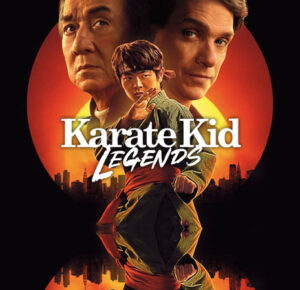AKA: Golden Gate
Director: Kim Seon-gyeong
Cast: Casanova Wong (aka Ka Sat Fat), Eagle Han Ying, Gam Ching Lan, Elton Chong (aka Jeong Jin Hwa), Hyeon Kil-Su, Martin Chui Man-Fooi, Austin Wai
Running Time: 91 min.
By Paul Bramhall
Magnificent Wonderman from Shaolin is a sure contender for having one of the greatest kung fu movie titles, and there’s plenty of competition out there. However as grand a title as it is, Magnificent Wonderman from Shaolin is decidedly misleading. Much like Strike of Thunderkick Tiger, the opening titles would have us believe that we’re about to watch a production directed by the equally dreaded and revered Godfrey Ho. For those familiar with Ho’s unique style of movie distribution, using his Asso Asia Films label, it should come as no surprise that he had nothing to do with directing any part of it, nor is it a Hong Kong movie as many sources have it listed.
Magnificent Wonderman from Shaolin is actually Ho’s re-working of the 1977 Korean movie, Golden Gate, directed by Kim Seon-gyeong. Seon-gyeong was a well known action movie director in Korea, and had just a year prior made Black Dragon River, a production notable for having super kickers Casanova Wong and Hwang Jang Lee in early roles sharing the screen together. Seon-gyeong also became the go to director whenever Hong Kong productions wanted to film in Korea, often directing various scenes for the movies he was brought in for, despite rarely receiving any recognition for them in the credits. Most famously he co-directed scenes for the Shaw Brothers production Killer Constable in 1980.
Golden Gate gives Casanova Wong his second lead role, after starring in Four Iron Men earlier in the same year, and is an entertaining entry into the Korean kung fu movie genre. As much as it’s easy to deride Godfrey Ho for his questionable film practices, it can’t be denied that often with these types of movie, the English dubs make them just as entertaining as the fight action. Under the new title of Magnificent Wonderman from Shaolin (even though “Shaolin” has no connection to the plot whatsoever), some of the best lines are given to the head monk who, perhaps inspired by Star Wars which was made the same year, speaks like Yoda. Yelling at a trio of monks after a lackluster display of fighting prowess, he yells “Idiots, all of you are!” Indeed.
The plot centers around the said trio of monks, two of whom are played by Korean kung-fu movie luminaries Eagle Han and Elton Chong, and their attempts to steal a golden buddha hidden somewhere in the temple that they’re residing in. The trio end up teaming up with a dastardly Mongolian played by Hyun Kil-soo, sporting pig tails and dangly earrings, and what they believe to be Kil-soo’s deaf mute assistant, played by Casanova Wong. Wong gets to play the role like a warm up to his ridiculous turn as a courier driven to insanity in The Master Strikes, made 3 years later. Although deaf and mute, it’s also made overtly obvious that he’s a complete idiot, usually found running around on all fours like a dog, or chewing on strands of his own hair.
Thankfully, around the 40 minute mark, Wong gets framed as a Mongolian spy and is thrown out of the temple, at which point he reveals to Kim Chung-ran (an actress many will recognize from the early Jackie Chan flicks Snake and Crane Arts of Shaolin and Half a Loaf of Kung fu) that he’s neither deaf nor mute, it’s been an act the whole time! It turns out that Kil-soo killed Wong’s father in the past, so he’s been following him around waiting for the right time to take his revenge ever since. You may ask why such a task required him to act as a deaf mute idiot, but if you do, don’t expect an answer. Logic isn’t the order of the day in Magnificent Wonderman from Shaolin, but it’s forgivable.
Wong’s meeting with Chung-ran is a significant one, as it turns out her father wrote a kung fu manual on how to master the Fire Fist. Learning the Fire Fist could be just what’s needed to overcome Kil-soo’s deadly Wind Blade technique. We get to witness the Wind Blade technique a couple of times in the movie, and I’m still not sure exactly what it does, apart from acting as a cue for some windy sound effects and a swirling sped up shot of some trees. Whatever it does though, it proves to be effective in eliminating the person going up against it. Soon Wong is bare chested on top of a mountain, busting out the moves in preparation for his revenge, with his mastery of the Fire Fist indicated by a red light being shone on to his hands, combined with cut away shots to the sun. This is visual filmmaking at its best, as it’s clearly conveyed that the Fire Fist is powered by the sun.
Best of all though, is that it leads to a deadly serious conversation between our heroes about the weather. How many kung fu movies out there contain a scene in which the characters discuss if it’s going to be a cloudy overcast day tomorrow, of if it’ll be perfect weather for a fight? Magnificent Wonderman from Shaolin is that movie. Of course the greatest kung fu movies never give the hero an easy ride, so fate dictates that on the day Wong decides to take his revenge, it is indeed cloudy. This is despite the fact that after this revelation, he proceeds to walk into a brightly lit field which indicates that there isn’t a cloud in the sky. Thank goodness for cloud stock footage.
The final 25 minutes are essentially a kicking showcase for Wong, which as a kung fu movie fan, is exactly what’s required. He takes on the traitorous trio of monks, who have now grown evil moustaches and mohawks to show their ill intent, and are armed with some aesthetically pleasing exotic weaponry. Austin Wai, the brother of Kara Hui, shows up as a guest villain brandishing a pair of double swords for a lengthy duel of blade versus feet, and of course the final showdown against Kil-soo himself. One aspect of Korean kung-fu movies that I find unintentionally charming, is that they’ll always attempt at least one wire assisted move which probably sounded great on paper, but ends up looking ridiculous onscreen. Magnificent Wonderman from Shaolin is no exception, so at one point Wong decides to grab a floored Kil-soo by both of his feet, and proceeds to horizontally lift him off the ground to an almost 75 degree angle, before throwing him so far his landing cuts away to a completely different area. It’s goofy, but it’s entertainingly goofy.
Eagle eyed kung fu movie fans will also notice that the temple the finale takes place at is the same one used for the finale of The Secret Rivals, made a year prior, with the rows of animal statues leading to the entrance being the give away. For those who want a fix of Casanova Wong’s kicking, the final third of the movie more than satisfies, and the rest entertains in a way that only a Godfrey Ho tampered with movie can. I lost track of the number of times a character was referred to as either an idiot or a bastard, there’s a funky Hammond organ driven soundtrack which doesn’t fit the setting in the slightest, and we even get the immortal line, “You’re tired of living?” thrown in for good measure. It may not be magnificent, but it’s far from being terrible.
Paul Bramhall’s Rating: 6.5/10











 Love him or hate him, there’s no denying that Jean-Claude Van Damme is a trendsetter when it comes to action and martial arts movies. He’s also a name that helped build franchises that gave birth to endless money-making sequels and prequels. In the late ’80s/early ’90s, films like Bloodsport and Kickboxer rejuvenated a genre that was practically in limbo during the final stages of the Chuck Norris and Ninja-craze era.
Love him or hate him, there’s no denying that Jean-Claude Van Damme is a trendsetter when it comes to action and martial arts movies. He’s also a name that helped build franchises that gave birth to endless money-making sequels and prequels. In the late ’80s/early ’90s, films like Bloodsport and Kickboxer rejuvenated a genre that was practically in limbo during the final stages of the Chuck Norris and Ninja-craze era.
























1 Comment